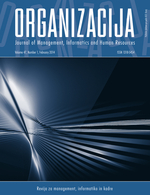School Science Experiments: a Bridge between School Knowledge and Everyday Experiences
Abstract
In Slovene grammar schools (gimnazija), Science is separated into three subjects: Biology, Chemistry and Physics. Correlations between the subjects are weak or even non-existent. All three subjects have only one thing in common: they are mostly academic, and barely connected with everyday phenomena and experiences. A consequence of this approach is that the knowledge of the students is patchy, and they are unable to use gained knowledge to explain the nature around them. In vocational schools the situation is completely different. School subjects are heavy interconnected with practice, but a scientific phenomenon is seen as an appendix to the curriculum. The authors are trying to overcome this situation at their schools with the introduction of computerized experiments into the teaching of Biology and Physics. Experiments are constructed in such a way, that they can be used with practically identical setups at two different types of school, and within two different subjects. The difference is in the context and purpose of the experiments. In such a way, the authors are trying to overcome a gap between school science and the everyday experiences gained at homes or in the workplace.
Refbacks
- There are currently no refbacks.

